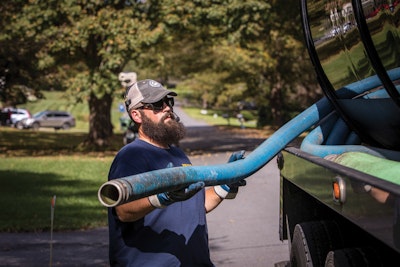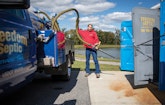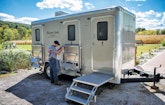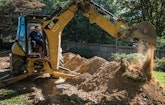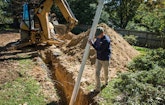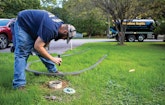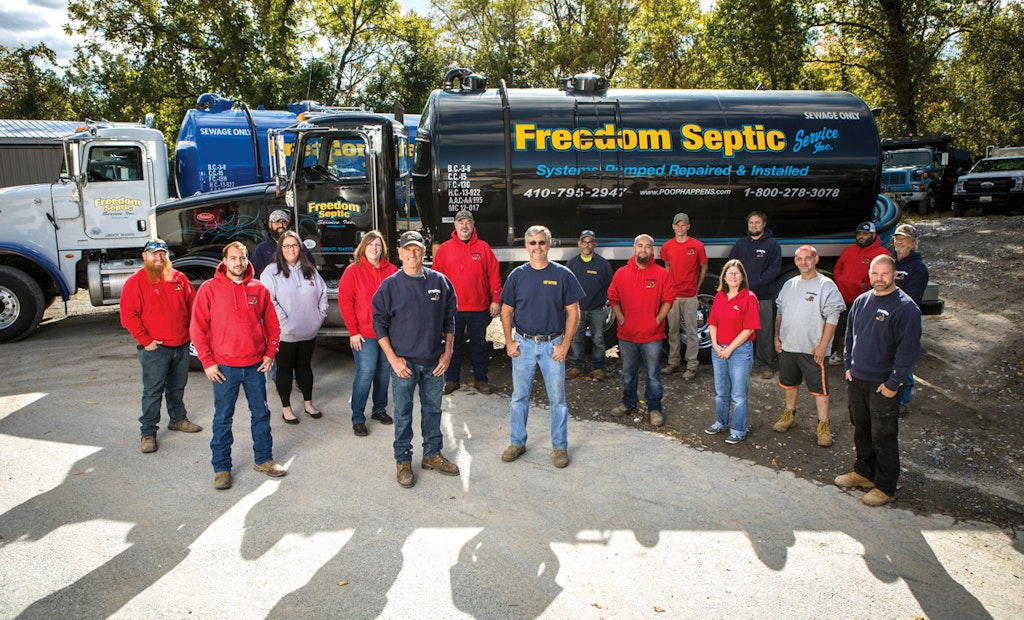
Bruce and Michael Bopst are surrounded by the crew of Freedom Septic, from left, Joey Flanders, Jordan Miles, Ken Walk, Christy Sheubrooks, Simone Saddler, Andrew Myer, Irving Rodriguez, Harry Poehlitz, Bradley Peach, Dustin Dolly, Susan Flanders, Lou Gepes, Carlos Aponte-Rivera, John Green and Dan Farrow. The truck behind them is a Peterbilt from Pik Rite and carrying a Jurop/Chandler pump. (Photos by John Boal)
Brothers Bruce and Michael Bopst got into the septic service business in 1990 and over the years developed a good feel for how much work and what services produce good results for their situation.
They don’t try to be all things to all people. They added installations but avoid...
